
The EU's Council and the Parliament negotiators have reached a provisional agreement to raise the share of renewable energy in the transport industry by 2030.
The revised Renewable Energy Directive (RED) on transport gives the possibility for member states to choose between:
In terms of the share of renewable energies supplied to the transport sector, the agreement sets a binding combined sub-target of 5.5%.
Big picture: In its overall target — covering transport; industry; buildings, heating and cooling; and bioenergy — EU negotiators agreed to raise the share of renewable energy in energy consumption to 42.5% by 2030, with an additional 2.5% indicative top up that would allow the figure to reach 45%.
What they said: Campaign group Transport & Environment (T&E) was critical of the EU's decision not to phase out soy and palm oil biofuels, which it described as "a disaster for forests" as the cap for crop-based biofuels will remain at 2020 levels and their use optional for member states.
Next steps: The agreement will first need be submitted to the EU member states' representatives in the Committee of Permanent Representatives in the Council and then in the Parliament for approval.
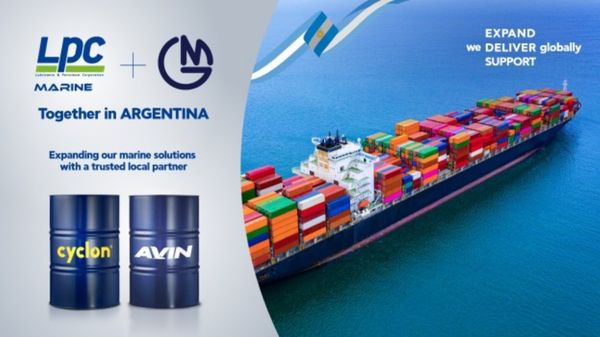
|
Gram Marine delivers first marine lubricants in San Lorenzo
Operation follows recent strategic partnerships with LPC and Servi Río. |
|
|
|
||
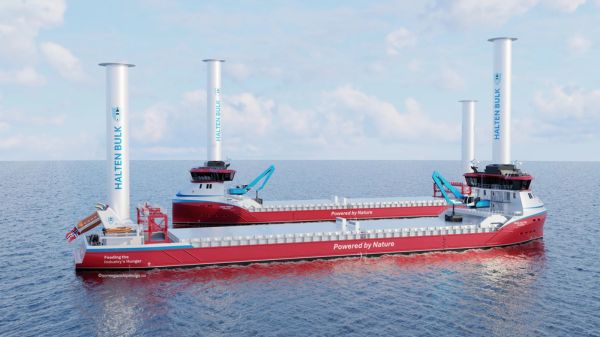
|
Halten Bulk orders wind-assisted bulk carriers with rotor sails from Chinese yard
Norwegian operator contracts two vessels with options for two more at SOHO Marine. |
|
|
|
||

|
IBIA introduces enhanced KYC framework for membership applications
Trade association to use Baltic Exchange platform for sanctions screening and company verification. |
|
|
|
||
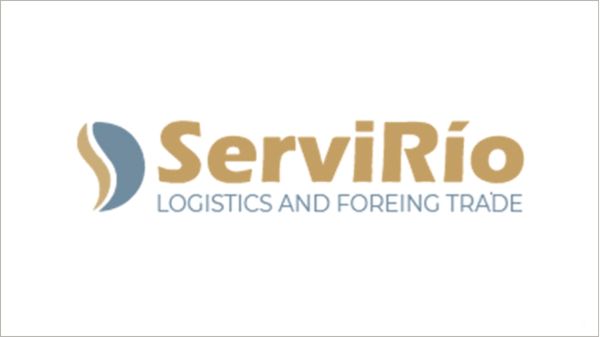
|
Servi Río joins Gram Marine and Cyclon alliance for Argentina lube operations
Argentine company to provide storage and transportation services for lubricant products in local market. |
|
|
|
||
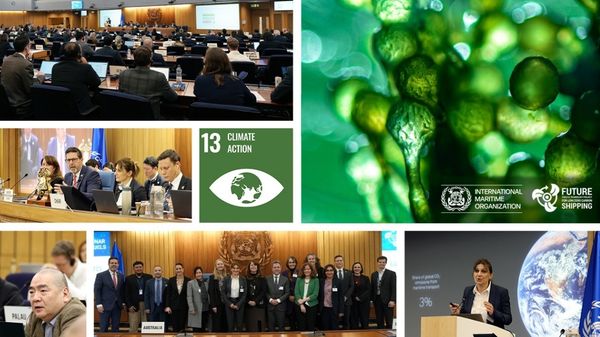
|
IMO seminar examines biofuels’ role in maritime decarbonisation
Event drew 700 in-person and virtual participants, with 1,300 more following the online broadcast. |
|
|
|
||
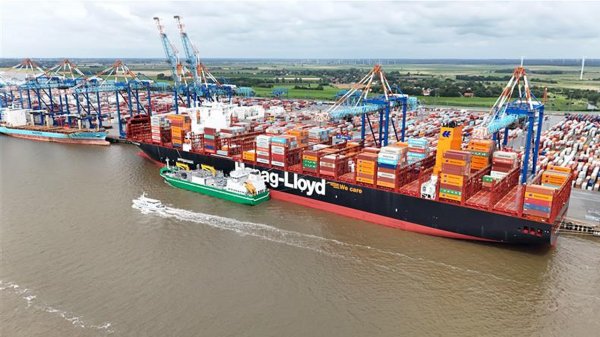
|
Hapag-Lloyd to acquire ZIM for $4.2bn in cash deal
German container line signs agreement to buy Israeli rival, subject to regulatory approvals. |
|
|
|
||

|
VPS outlines key features of Maress 2.0 with enhanced analytics for offshore vessel efficiency
Updated platform adds data validation, energy flow diagrams and fleet comparison tools for decarbonisation monitoring. |
|
|
|
||
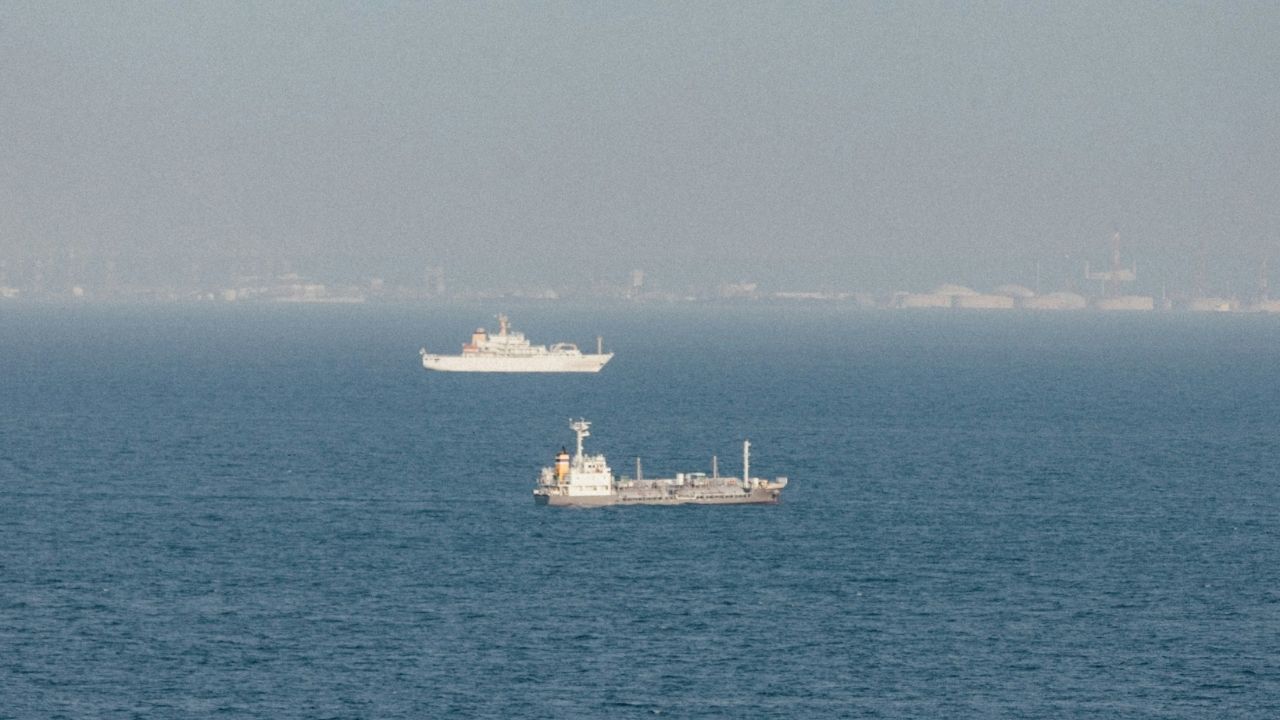
|
IMO committee agrees NOx certification rules for ammonia and hydrogen engines
DNV reports PPR 13 also advanced a biofouling framework and crude oil tanker emission controls. |
|
|
|
||
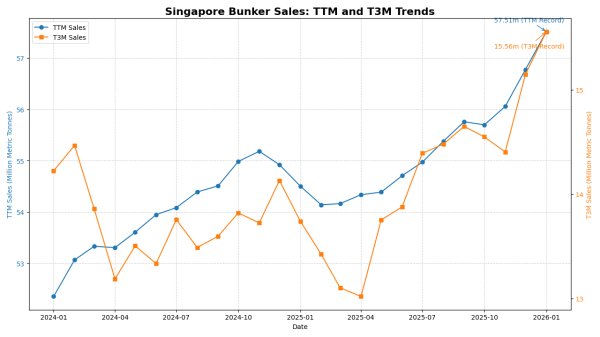
|
Singapore bunker sales set new record as TTM volumes surpass 57.5 tonnes
Rolling 12-month bunker sales at the Port of Singapore have reached a fresh all-time high, breaking above 57.5 million tonnes for the first time, alongside a record surge in short-term demand. |
|
|
|
||
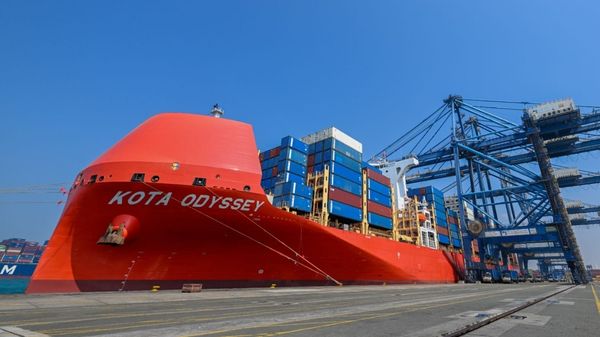
|
PIL’s LNG-powered Kota Odyssey makes maiden call at Saudi Arabian port
Container vessel marks first entry into the Red Sea with call at Red Sea Gateway Terminal. |
|
|
|
||
| EU agrees new rules on cleaner marine fuels [News & Insights] |
| 25 years of air pollution regulations [News & Insights] |
| Med ECA approved; zero 2050 target gains traction [News & Insights] |